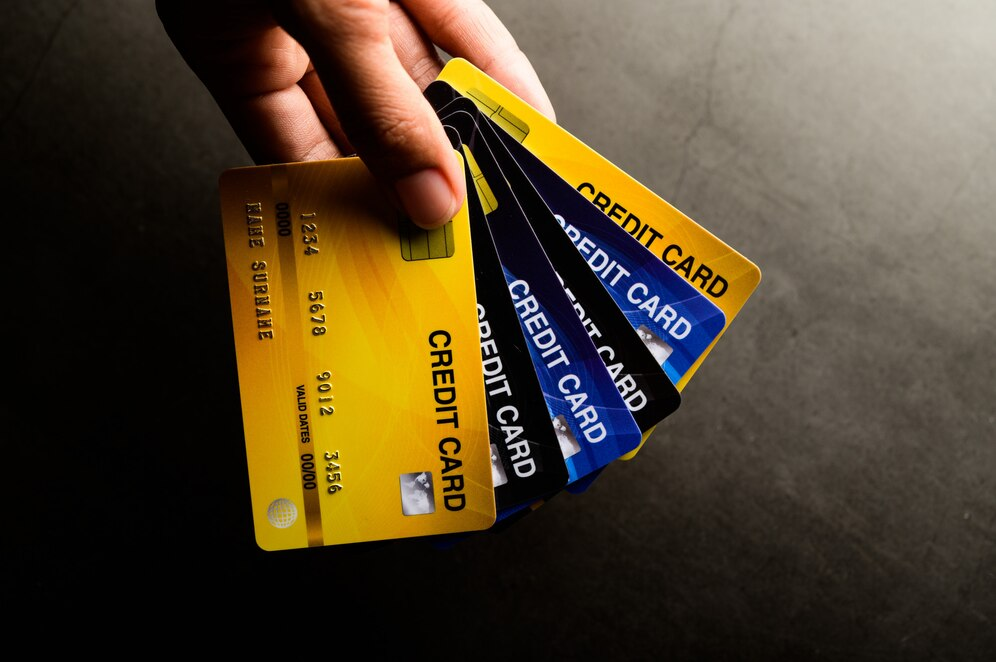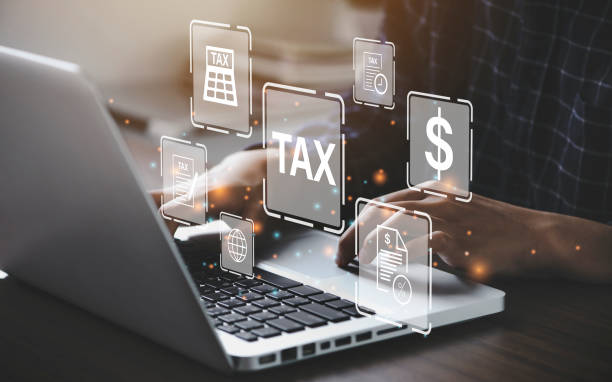Credit cards are often seen as a convenient tool for financing purchases. They allow you to buy now and pay later, often with tempting reward programs and purchase protections. However, the question arises: which is not a positive reason for using a credit card to finance purchases? In this article, we delve into why using a credit card might not always be the best decision for your financial health.
The High Cost of Convenience
Credit cards offer convenience and flexibility in making purchases, but their allure often comes with a hefty price tag. While they may seem like a convenient means to finance purchases, utilizing credit cards can lead to financial strain and long-term consequences. Here’s a comprehensive examination of why relying on credit cards for financing can be detrimental.
Interest Rates Skyrocket
One of the most significant drawbacks of using credit cards for financing is the exorbitant interest rates they carry. The Annual Percentage Rate (APR) on credit cards can vary widely, typically ranging from 18% to 25%, depending on factors such as creditworthiness and the type of card.
- Interest Rate Variability: Unlike other forms of financing, such as personal loans or mortgages, credit card APRs are often variable, subject to change based on market conditions or issuer policies. This variability can make it challenging to predict future interest expenses accurately.
- Compounded Daily: A critical aspect of credit card interest is its compounding nature. Interest accrues daily on the outstanding balance, meaning that each day, a small percentage of the total debt is added to the balance. Over time, this compounding effect can significantly inflate the amount owed, making it harder to pay off the debt.
To illustrate, consider a scenario where a $1,000 balance is subject to an APR of 20%. Using a simplified daily compounding formula, the interest accrued on day one would be approximately $0.55. However, by day 30, the accrued interest would have risen to approximately $16.53, showcasing how quickly interest can accumulate.
Impact on Credit Scores
Beyond the immediate financial burden posed by high-interest rates, utilizing credit cards for financing can also have adverse effects on your credit score, a crucial metric that lenders use to assess your creditworthiness.
- Utilization Ratio: Your credit utilization ratio, which measures the amount of credit you’re using relative to your total available credit, is a significant factor in determining your credit score. High credit card balances can result in a high utilization ratio, which can, in turn, lower your credit score.
- Payment History: Timely payments are vital for maintaining a healthy credit score. Missing payments or making late payments on credit card bills can have severe repercussions, as payment history accounts for 35% of your FICO score, the most widely used credit scoring model in the United States.
To mitigate the negative impact on your credit score, it’s essential to manage credit card usage responsibly, ensuring that balances are kept low relative to credit limits and that payments are made on time, every time.
The Debt Spiral
Using credit cards to finance purchases can often lead to a debt spiral. Here’s how:
Minimum Payments Trap
One of the primary drivers of the debt spiral is the tendency for individuals to make only the minimum payments on their credit card balances. Here’s why this is problematic:
| Issue | Explanation |
| Minimum Payments | Credit card companies typically require cardholders to make a minimum payment each month, which is usually a small percentage of the total balance (e.g., 1-3% of the balance plus interest). |
| Interest Coverage | These minimum payments often primarily cover the accrued interest charges, with only a small portion going towards reducing the principal balance. |
| Prolonged Debt | By consistently making only the minimum payments, cardholders prolong the time it takes to pay off the debt, allowing interest to accumulate and the debt to grow. |
Escalating Debt Due to Compounded Interest
Another factor contributing to the debt spiral is the continuous use of credit cards while carrying a balance:
- Compounded Interest: Credit card interest compounds, meaning that interest is charged not only on the original balance but also on the accumulated interest. This leads to a snowball effect, where the debt grows exponentially over time.
- Increased Utilization: Continuing to use the credit card for purchases while carrying a balance amplifies the debt burden. New purchases accrue interest immediately, further adding to the outstanding balance.
- Decreased Payment Impact: As the debt increases, the impact of making minimum payments diminishes. More of the payment goes towards servicing the interest rather than reducing the principal balance, perpetuating the cycle of debt.
The Psychological Factor

The ease of separating spending from the act of paying, particularly evident with credit cards, can lead to increased spending compared to using cash. Psychological studies have shed light on this phenomenon, revealing that individuals are often willing to spend significantly more when using credit instead of cash.
Separation Between Spending and Paying
One of the key psychological factors influencing spending behavior is the degree of separation between the act of spending money and the act of paying for it:
- Credit Card Usage: With credit cards, there is a notable separation between spending and paying. When making a purchase, individuals do not immediately feel the financial impact, as the actual payment is deferred until a later date, typically the credit card statement due date.
- Cash Transactions: In contrast, cash transactions involve an immediate exchange of physical currency for goods or services. The act of handing over cash creates a tangible connection between spending and paying, making individuals more aware of the financial consequence of their purchases.
Psychological Studies on Spending Behavior
Psychological research has provided valuable insights into the relationship between payment methods and spending behavior:
- Willingness to Spend: Studies have shown that individuals are more willing to spend larger amounts when using credit cards compared to cash. One study found that people are willing to spend up to 100% more when using credit cards instead of cash for the same purchase.
- Delayed Payment Perception: The perception of delayed payment with credit cards can lead individuals to underestimate the true cost of their purchases. This delayed payment perception can encourage impulse buying and discretionary spending beyond one’s means.
Implications for Personal Finance
Understanding the psychological factors at play in spending behavior has significant implications for personal finance management:
- Budgeting Challenges: The ease of credit card spending can pose challenges for budgeting and financial planning. Individuals may overspend without realizing the full extent of their financial obligations until they receive their credit card statements.
- Accumulation of Debt: Excessive reliance on credit cards for spending can contribute to the accumulation of debt over time. High-interest credit card debt can quickly spiral out of control, leading to financial stress and instability.
- Financial Awareness and Discipline: Cultivating financial awareness and discipline is crucial for mitigating the negative effects of psychological spending biases. Regularly monitoring expenses, setting spending limits, and prioritizing needs over wants can help individuals maintain control over their finances.
Alternatives to Credit Card Financing
When faced with financial needs or unexpected expenses, individuals often turn to credit cards for financing. However, there are alternative options available that can help mitigate the risks associated with credit card debt while still addressing financial needs. Here are some alternatives to consider:
Savings
Building and maintaining a savings account serves as a fundamental financial safety net, providing a buffer to cover unexpected expenses or emergencies without resorting to borrowing:
- Financial Security: Having a sufficient savings cushion offers peace of mind, knowing that funds are readily available to handle unforeseen expenses or emergencies.
- No Interest Costs: Unlike credit card financing, using savings to cover expenses does not incur interest charges. This can lead to significant cost savings over time.
- Self-Sufficiency: Relying on savings promotes financial independence and self-sufficiency, reducing dependence on external sources of financing and potential debt traps.
Personal Loans
Personal loans provide a structured borrowing option with fixed repayment terms and typically lower Annual Percentage Rates (APRs) compared to credit cards, especially for borrowers with good credit scores:
- Lower Interest Rates: Personal loans often offer lower APRs compared to credit cards, making them a more cost-effective financing option, particularly for larger expenses or debt consolidation.
- Fixed Repayment Schedule: Personal loans come with fixed repayment schedules, allowing borrowers to plan and budget effectively. This predictability can help individuals manage their finances more efficiently.
- Credit Score Impact: Responsible repayment of a personal loan can positively impact credit scores, enhancing future borrowing opportunities and financial flexibility.
Debit Cards
Debit cards offer a convenient payment method that directly accesses funds from a linked checking account, ensuring individuals can only spend money they already possess:
- Spending Control: Unlike credit cards, which allow for spending beyond one’s means, debit cards restrict spending to available funds in the associated bank account. This promotes financial discipline and helps prevent debt accumulation.
- No Interest Charges: Debit card transactions do not incur interest charges, as purchases are paid for using existing funds in the checking account. This eliminates the risk of accruing high-interest debt.
- Account Monitoring: Debit card usage provides real-time visibility into account balances and transactions, allowing individuals to track spending and manage their finances more effectively.
Conclusion
While credit cards offer convenience and rewards, they are not always the best choice for financing purchases. The high interest rates, potential for debt accumulation, and negative impacts on your credit score are significant downsides. It is crucial to consider these factors when deciding whether to use a credit card for your next big purchase.
FAQ
A: Accumulating interest due to high APRs is not a positive reason as it increases the cost of the items you buy.
A: High credit utilization and missed payments can negatively impact your credit score.
A: Yes, personal loans or a well-funded savings account are safer alternatives as they don’t compound interest daily like credit cards.

